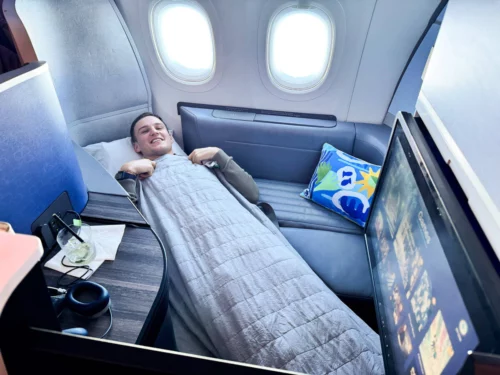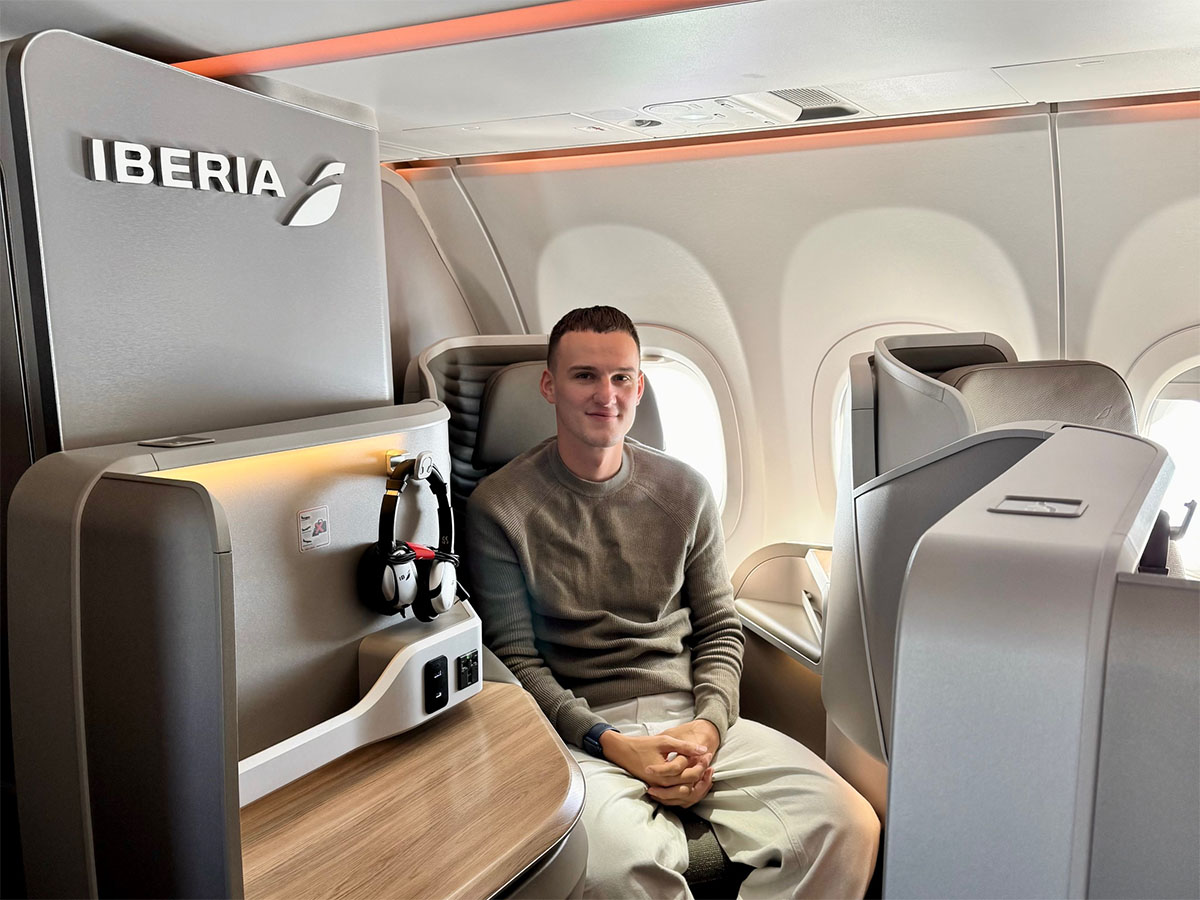How to beat jet lag: my advice after 130+ long haul flights
Links on Head for Points may support the site by paying a commission. See here for all partner links.
The number one question I get when I tell people what I do, after they comment that I have their ‘dream job’, is “how do you beat jet lag?”
The answer I always give is that I don’t. Jet lag is not something you can beat. You can soften the blow, but it will never be something you can overcome. Yanking your body from one time zone to another has consequences.
Even if we invented teleporting you would still need to adjust to the timezone of your destination, which can vary as much as plus or minus 12 hours.
Our internal body clocks depend on regularity, the colour spectrum of the light and more. It’s a testament to nature that our bodies know something is wrong when we fly half way around the world.
That said, after many long haul flights in my past six years at Head for Points I’ve become accustomed to managing my jet lag better than most. I thought I’d put together how I do it.
1. Fly business class
This may sound facetious but it’s true. I could not do my job if I was flying economy. Last autumn I flew to Asia three times within one week: London – Hong Kong – London – Taipei – Saigon. I didn’t even leave Heathrow between my Hong Kong and Taipei flights.
Flying business class is, in my opinion, the best way to reduce the effects of jet lag. Why? Because with a flat bed you can actually get some decent sleep.
If you’re someone who can get a proper eight hours’ rest sitting upright cramped in economy then congratulations. I wish I could. Unfortunately, I need to be at least vaguely horizontal to get some good rest and that’s something you only get in business or first class, unfortunately.
Flying business class is a game-changer because you can arrive at your destination feeling at least vaguely fresh. Without wanting to sound like a colossal %£$! I now actively avoid flying long haul economy at all costs, even when travelling on my holidays.
On my recent family holiday to New Zealand, for example, I managed to redeem Avios for four seats in business class on Qatar Airways for me and my family, having refused to fly that far were we to go in economy!
Sleep is always my number one priority when flying. When returning from a US East Coast city such as New York or Boston I’ll always skip the meal service and go straight to sleep – ear plugs help for tuning out the noise of a meal service.
2. Melatonin is a useful sleep aid
Melatonin, for those that don’t know, is a hormone naturally produced by your body that makes you feel sleepy and regulates your sleep-wake cycles. Production naturally rises in the evening and at night and dips in the morning and during the day.
Rather than take a ‘proper’ sleeping pill I find melatonin is enough to help me maintain a regular sleeping schedule.
In the UK it’s sold as a prescription medicine but in the United States and many other countries it can easily be purchased over-the-counter at a pharmacy such as Walgreens or Target.
Regularly taking melatonin is probably not recommended and may lead to dependency, but I find it fantastic in dealing with those classic jet lag situations where you are laying in bed wide awake at 3am because your body is telling you it is morning.

I always travel with melatonin pills and use them both on board a flight but also when I reach my destination to help me sleep at the ‘correct’ hours. In some cases that might mean taking one in the evening so I feel appropriately tired and can fall asleep. At other times that might mean taking one in the middle of the night when I wake up.
Note that the NHS advises not to take melatonin after 4am. You may find it works a little too well and you might struggle to wake up properly in the morning!
3. Sunlight and exercise
This is common advice but I find it really helps. Being outside and soaking up some sunshine immediately boosts my alertness and makes me feel better, especially after being in a flying aluminium tube for many hours.
One of my routines, if I feel up to it, is to go for a run outside within a few hours of getting home in the morning. I’m normally still energetic after the flight, and the run itself also makes me feel more awake for the rest of the day. Being outside, ideally in the sun, also helps to reset my body clock to the correct hours.
Bizarrely, I also find I run some of my best times after a long haul flight, probably because I’ve been sitting and eating and so have plenty of energy to burn off!
4. Do not oversleep
One of the biggest rules when trying to overcome jetlag is not to give in to the tiredness, and sometimes that means being strict with yourself not to out-sleep an alarm. There are few things as detrimental and counterproductive than staying in the ‘wrong’ timezone and oversleeping.
Fortunately, I’m good at waking up when I need to, even if I don’t enjoy it, so when my alarm goes off in the morning I’ll force myself up. No pain no gain!
5. Embrace napping
I’m also an avid napper, and will often have a 24-minute nap after lunch even when I’m not jetlagged!
Personally, I’ve found 24 minutes to be the ideal amount of time between falling asleep and entering a deep sleep cycle. During such a nap I’ll often feel like I’m not sleeping, only to find my alarm waking me up from a short dream.
I’ll then spend five minutes or so slowly re-energising myself before getting back to whatever it is I need to do, feeling better and more alert. It’s a lifesaver for me and far, far better than trying to struggle through the tiredness.
Conclusion
As anyone who travels a lot can tell you, life on the road (or rather, in the sky) is not about beating jet lag but managing it. Whilst you can’t alter the fundamental way your body responds to time changes, you can at least soften the blow and encourage it to adjust faster.



 Rob
Rob 






Comments (138)